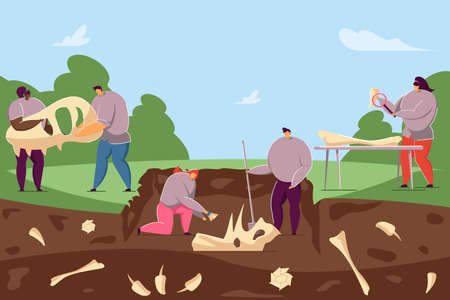Understanding Your Environmental Impact
Camping in the UK is one of the best ways to soak up our stunning landscapes, from the wilds of the Lake District to the rugged coastline of Cornwall. However, as more people embrace the great outdoors, the environmental impact of camping activities has become increasingly evident. Litter left behind, improper waste disposal, and overuse of fragile habitats can all contribute to pollution and long-term ecological damage. Even seemingly minor actions—like using single-use plastics or straying from marked paths—can have a cumulative effect on local wildlife and natural resources. Understanding these impacts is the first step towards becoming a responsible camper. By recognising how our choices influence the environment, British campers can adopt better waste management habits that not only protect nature but also ensure these beautiful places remain unspoilt for future generations.
Planning Ahead: Minimising Waste Before You Set Off
One of the most effective ways for British campers to reduce their environmental footprint is by planning ahead and making conscious choices before leaving home. Being prepared not only helps prevent unnecessary waste but also ensures a smoother camping experience, especially in popular spots across the UK where waste disposal facilities may be limited. Here are some practical steps to consider:
Smart Packing: Only What You Need
Start by making a detailed checklist of essentials, focusing on multi-use items and avoiding single-use products. Overpacking often leads to more rubbish and wasted food, so being realistic about what you’ll actually use is key. Consider portioning out food at home and packing items in reusable containers.
Sustainable Product Choices
Opt for eco-friendly alternatives wherever possible. For instance, swap disposable plates and cutlery for reusable ones made from bamboo or stainless steel. Bring refillable water bottles and coffee cups instead of relying on plastic versions. Look for biodegradable toiletries and cleaning products that won’t harm local ecosystems.
Packing Tips Table: Sustainable Swaps for Campers
| Conventional Item | Sustainable Alternative |
|---|---|
| Plastic water bottles | Refillable stainless steel bottle |
| Disposable cutlery/plates | Bamboo or metal reusables |
| Travel-size toiletries (plastic) | Solid shampoo bars & soap in tins |
| Cling film/foil | Beeswax wraps or reusable containers |
| Wet wipes | Biodegradable wipes or flannels |
Bulk Buying & Local Shopping
If you’re travelling with family or friends, consider bulk buying snacks and meals to reduce packaging waste. Once you arrive near your campsite, support local farm shops or markets—this helps minimise food miles and avoids excess packaging often found in supermarkets.
Prepping Meals at Home
Prepare and pack meals in advance using reusable containers. This not only saves time at camp but also reduces the temptation to buy convenience foods with lots of packaging. Don’t forget to label containers for easy identification!
The British Touch: Mindful of Local Habits
Finally, remember that many UK campsites operate “leave no trace” policies. Familiarise yourself with site-specific rules about recycling and rubbish disposal before you go. Planning ahead ensures you’ll tread lightly on Britain’s beautiful countryside, preserving it for future generations of campers.

3. On-Site Waste Management: Recycle, Reuse, and Reduce
When you’re out enjoying the British countryside, managing your waste responsibly is crucial to preserving the natural beauty that makes camping in the UK so special. Most popular campsites from Cornwall to the Lake District now encourage or require campers to follow strict waste protocols. Here’s how you can effectively recycle, compost, and reuse while camping – all tailored to British campsites.
Recycling at UK Campsites
Many established campsites across the UK provide dedicated recycling bins for glass, plastics, cans, and cardboard. Before setting off, check your campsite’s website or contact them directly to understand their recycling facilities. Bring a couple of sturdy bags or collapsible crates to sort recyclables at your pitch; this makes sorting waste a breeze when it’s time to visit the bins. Remember that British recycling systems may vary by council area—familiarise yourself with local signage and only deposit items that are accepted on-site.
Composting Food Waste
Composting is becoming increasingly common at eco-conscious campsites in Britain. If your site offers food waste or composting bins, separate out fruit and veg peelings, coffee grounds, and other suitable scraps. Avoid adding meat or dairy unless specifically allowed, as these can attract wildlife. If composting isn’t available on-site, use a sealable container to store food waste until you return home or find a public composting scheme nearby.
Resourceful Reusing Tips
Reusing items is an excellent way to reduce overall waste on your trip. Opt for reusable water bottles, cutlery, and crockery instead of disposables—these are widely available in outdoor shops across the UK. Save containers from shop-bought foods (like butter tubs or takeaway boxes) to repurpose for leftovers or as impromptu storage. Even used bread bags make handy rubbish liners for litter picking walks around the campsite! By adopting a mindset of ‘make do and mend’, you’ll find plenty of creative ways to cut down on single-use products while exploring Britain’s great outdoors.
Respecting Local Wildlife and Natural Spaces
When camping in the UK, respecting local wildlife and natural spaces is not just considerate—its essential for preserving the country’s unique ecosystems. Whether you’re pitching a tent in the Lake District or exploring the Scottish Highlands, every action matters. Here’s how British campers can reduce their environmental footprint by following leave-no-trace principles and adhering to legal waste disposal guidelines.
Leave-No-Trace Principles for British Campers
The leave-no-trace philosophy is vital for protecting Britain’s diverse landscapes and habitats. By minimising our impact, we help ensure these beautiful places remain unspoilt for future generations. Here are key principles tailored for UK campers:
| Principle | Practical Tips for UK Campers |
|---|---|
| Plan Ahead & Prepare | Research campsite regulations, weather forecasts, and protected areas. Avoid busy periods to lessen strain on environments. |
| Travel & Camp on Durable Surfaces | Use established paths and pitches; avoid trampling wildflowers or sensitive heathland. |
| Dispose of Waste Properly | Follow local council waste collection guidelines. Bag rubbish and use designated bins—never leave litter behind. |
| Leave What You Find | Avoid picking flowers, disturbing stones, or moving logs that serve as wildlife habitats. |
| Respect Wildlife | Keep a safe distance from animals, especially during breeding seasons. Store food securely to deter curious creatures. |
| Be Considerate of Others | Keep noise down and respect other visitors’ space for a tranquil countryside experience. |
Legal Waste Disposal: Staying Within the Law
Proper disposal of waste is more than a courtesy—it’s required by law across the UK. Fly-tipping (illegal dumping) can result in hefty fines or prosecution. Make sure you:
- Sort your rubbish: Separate recyclables (plastic, glass, cans) from general waste where facilities exist.
- Chemical toilet waste: Empty chemical toilets at authorised disposal points only—never in watercourses or hedgerows.
- Avoid burning rubbish: Open fires are often banned due to wildfire risk; always check local restrictions before lighting any fire or BBQ.
- Pack out what you pack in: If there are no bins, take all waste home with you—including biodegradable items like orange peels or tea bags, which can harm native species.
Caring for Protected Areas and Species
The UK is home to many Sites of Special Scientific Interest (SSSIs), National Parks, and Areas of Outstanding Natural Beauty (AONBs). These areas have extra rules to safeguard rare species and habitats. Always check signage at entrances for specific do’s and don’ts—such as keeping dogs on leads during nesting season—and report any pollution or damage to local authorities promptly.
Your Role as a Responsible Camper
By embracing these guidelines, British campers can enjoy the outdoors while helping to protect the UK’s precious wildlife and landscapes. It’s about leaving each site better than you found it and setting an example for others to follow—ensuring wild spaces thrive for years to come.
5. Innovative Products and Local Solutions in the UK
One of the most effective ways to reduce your environmental footprint while camping in the UK is by embracing innovative products and tapping into local solutions specifically designed for sustainable waste management. The British outdoor industry has seen a surge in eco-friendly gear that caters to responsible campers. For instance, biodegradable rubbish bags are now widely available at most outdoor retailers, making it easy to pack out all waste without leaving microplastics behind. Reusable silicone food wraps and beeswax wraps are excellent alternatives to cling film, helping reduce single-use plastics on your trip.
Many UK-based companies have stepped up with practical solutions for campers looking to tread lightly. Brands like EcoSack and GreenBags offer compostable bin liners tailored for outdoor use, while companies such as Water-to-Go provide refillable water bottles with built-in filters, allowing you to cut down on single-use plastic bottles even when camping off-grid. For cooking, consider investing in portable stoves that run on biofuel or wood collected responsibly from designated areas rather than disposable gas canisters.
Beyond products, several local initiatives across Britain support sustainable camping practices. Many campsites now feature dedicated recycling points and compost bins, and some—like those part of The Greener Camping Club—actively encourage campers to separate their rubbish and educate them about low-impact living. Community-driven clean-up groups such as Surfers Against Sewage or Keep Britain Tidy often organise litter-picking events around popular camping spots, so joining in can be a great way to give back while exploring the outdoors.
Some services go the extra mile by offering portable composting toilets for hire—a brilliant solution if you’re wild camping or attending festivals. These toilets not only minimise human impact but also help return nutrients safely to the soil through proper waste processing. Look out for local suppliers who deliver and collect these units across the UK countryside.
Ultimately, combining clever kit choices with involvement in UK-based initiatives ensures your adventure leaves minimal trace. By supporting British brands and community projects committed to environmental stewardship, you’ll enjoy your camping experience knowing you’re doing your bit for nature—now and for future generations of explorers.
6. Sharing Knowledge and Setting an Example
One of the most powerful ways British campers can reduce their environmental footprint is by sharing knowledge and setting a positive example for others. When you adopt responsible waste management practices, you not only protect the stunning landscapes of the UK, but also inspire fellow campers to follow suit. Start conversations at campsites about why it’s important to minimise rubbish, recycle properly, and use eco-friendly products. If you see someone struggling with waste disposal or unsure about local recycling rules, offer friendly advice based on your experience. Simple tips—like bringing reusable containers, separating recyclables, or taking litter home if bins are full—can make a big difference.
Promoting Community Action
Joining or organising group clean-ups at popular camping spots such as Lake District trails or Cornish beaches is another excellent way to foster community spirit and environmental stewardship. Many local councils and conservation groups run regular events where volunteers pick up litter and educate visitors about sustainable camping. By getting involved, you help keep the countryside pristine and show that responsible tourism is a shared effort. Don’t be shy about inviting friends or family along—it’s often more enjoyable working together and can lead to lasting change in attitudes towards waste.
Supporting Sustainable Tourism
Choosing campsites that have clear sustainability policies, support local wildlife, or participate in eco-initiatives demonstrates your commitment to reducing your impact. Leave positive feedback for sites that manage waste responsibly or encourage guests to “leave no trace.” When planning trips, consider using public transport or car-sharing schemes to reduce emissions, and share these ideas with others online or through word-of-mouth. The more campers who champion sustainable choices, the stronger the message to businesses and other travellers that protecting Britain’s natural beauty is everyone’s responsibility.
Becoming an Ambassador for Change
Every small step counts. By setting an example—whether picking up stray litter, educating newcomers about campsite rules, or choosing greener products—you become an ambassador for sustainable camping across the UK. Encourage others to adopt these habits not by lecturing, but by showing how simple changes can enhance everyone’s outdoor experience. Together, British campers can create a culture where caring for the environment is second nature, ensuring our wild spaces remain unspoilt for generations to come.


